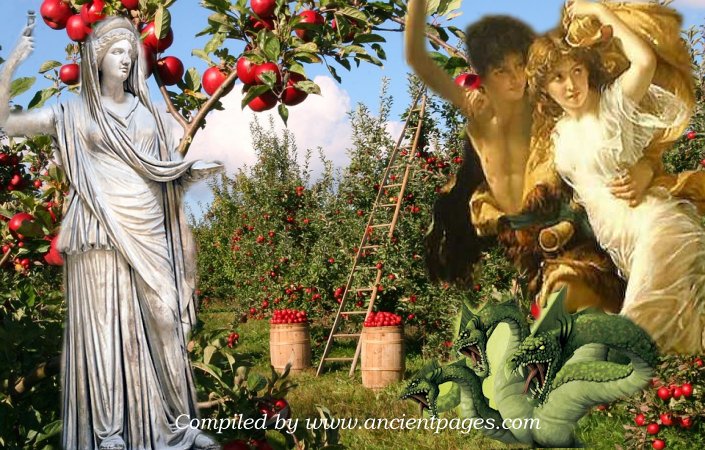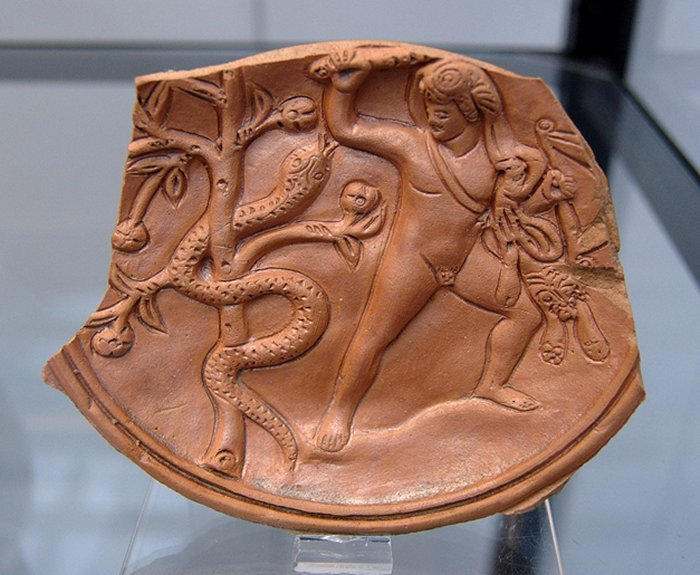Hesperides – Greek Nymphs Who Guarded Fabled Garden With Divine Apples Of Immortality
A. Sutherland - AncientPages.com - The most famous garden in Greek mythology was the Garden of the Hesperides. This legendary aromatic place was full of golden apples, which Gaia (Earth) gave to the goddess Hera and Zeus as a wedding gift.
The fabled garden was guarded by the nymphs of the far west, the Hesperides, daughters of the Titan Atlas, who bore the vault of heaven upon his gigantic and robust shoulders.
The land of Hesperides was variously located; eventually, it was placed near North Africa's Atlas Mountains, at the edge of the world ocean, Oceanus.
Three, Four Or More Hesperides Nymphs With Many Names
The parentage of the Hesperides has never been specified. According to the poem Theogony (c. 700 BC) by Hesiod, the Hesperides were daughters of Erebus, one of the first five beings in existence, born of Chaos and the goddess of the night, Nyx. In time, they were also considered to be daughters of Zeus and Themis and most often Atlas and Nyx (or Hesperia). Ancient sources are not specific regarding the number of Hesperides:
Were they three, four, or perhaps even seven of them?
One version of their story prevails and says there were three of them; Apollonius of Rhodes gives their names as Aigle, Erytheis (Erytheia), and Hespera, similar to other triads often encountered in Greek myths.
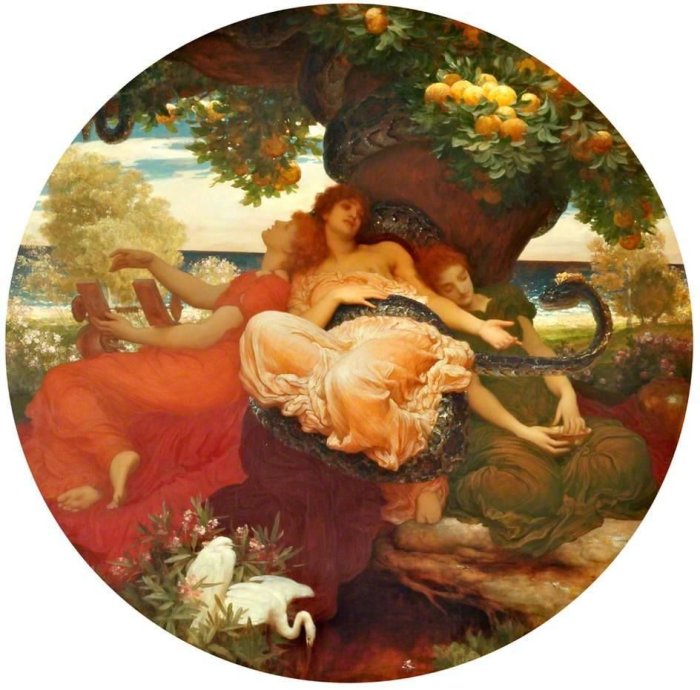
Hesperides Nymphs - The Garden of the Hesperides by Frederick, Lord Leighton, 1892. The Bridgeman Art Library,
The name of these magical ladies originates from Hesperos ('evening'); in Latin, Heperus means the evening star (i.e., the planet Venus). The nymphs of the evening and golden light of sunset have many names, such as the "Daughters of the Evening," "Sunset Ladies," "The Western Women," or "Nymphs of the West."
Untrusted Guardians Of The Golden Apples
The sisters presided over matrimonial pleasures, romance, and the honeymoon night. They could sing wonderfully, but they first guarded divine treasures belonging to the Olympians, including trees with golden apples.
As the sisters were not particularly trusted guardians of the apples (they liked to take apples for themselves), the goddess Hera also appointed an immortal dragon named Ladon as an additional safeguard of the garden.
Heracles in the Garden of the Hesperides. Image credit: Trustees of the British Museum, London
The courageous hundred-headed creature was a very efficient apple tree protector. Ladon never closed his eyes and could fight with many enemies and demons simultaneously. The beast was able to use many different voices and was the offspring of a monster, Echidna "she-viper") a half-woman and half-snake who lived alone in a cave.
She was the mate of the fearsome monster Typhon.
We learn about the garden of the Hesperides from the story of Heracles, the greatest of the legendary Greek heroes and the son of Zeus and Alcmene.
Once driven insane by Hera, Heracles killed his own children in a confused state of mind. As a part of his long punishment, he was forced to carry out twelve arduous labors given to him by his cousin, King Eurystheus.
The twelve labors seemed to be impossible to accomplish.
One of them was to find the Garden of Hesperides and bring (or steal) some golden apples. From Nereus, the Old Man of the Sea, the sea god, and a shapeshifter, Heracles learned about the location of the Hesperides.
Heracles and Ladon guarding the tree of the golden apples. Credit: Carole Raddato, Germany; Uploaded by Marcus Cyron - CC BY-SA 2.
Usually, myths are remembered in different versions. According to one version, Heracles stole the apples after killing the dragon Ladon. According to another, he did it with the help of Atlas.
Titan Atlas Helps To Get Apples
The most popular version of this story is that Herakles asked for Atlas's help obtaining them and even held up the sky while Atlas was retrieving the apples. After returning with the apples, Atlas surprisingly refused to retake his job as the eternal holder of the heavens. He offered to deliver the apples himself, hoping to regain his freedom. Heracles tricked Atlas, walked away with the apples, and could now give them to Eurystheus.
The king did not want the divine apples of immortality; he understood they belonged to the gods, especially to the goddess Hera, so eventually, the apples returned to the Garden of Hesperides.
Golden Apples – A Popular Motif In Ancient Myths
The Golden Apples of the Hesperides remind us of the Golden Apples we encounter in Norse mythology. The apples protected by Idun grant immortality to the Aesir gods living in Asgard.
However, immortality is only available to the gods and never to ordinary people, even if they are kings and nobles.
Updated on February 25, 2024
Written by – A. Sutherland AncientPages.com Senior Staff Writer
Copyright © AncientPages.com All rights reserved. This material may not be published, broadcast, rewritten or redistributed in whole or part without the express written permission of AncientPages.com
Expand for referencesReferences:
Lamstone, J. Greek Mythology
Evslin, Bernard. Heroes, Gods and Monsters of the Greek Myth
Kirk, S. Greek Myths
More From Ancient Pages
-
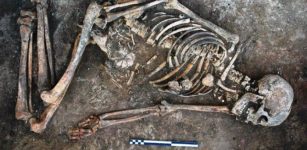 Unique Bones Decorated With Black Markings Discovered In 4,500-Year-Old Tomb In Ukraine
Archaeology | Jul 30, 2018
Unique Bones Decorated With Black Markings Discovered In 4,500-Year-Old Tomb In Ukraine
Archaeology | Jul 30, 2018 -
 Germany’s Stonehenge Pömmelte Reveals More Secrets – 140 Wooden Houses And 78 Silos Found
Archaeology | Jul 2, 2024
Germany’s Stonehenge Pömmelte Reveals More Secrets – 140 Wooden Houses And 78 Silos Found
Archaeology | Jul 2, 2024 -
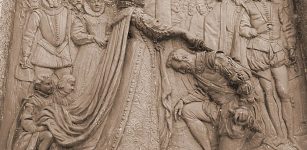 On This Day In History: Francis Drake Was Knighted After He Completed A Circumnavigation Of The World – On Apr 4, 1581
News | Apr 4, 2016
On This Day In History: Francis Drake Was Knighted After He Completed A Circumnavigation Of The World – On Apr 4, 1581
News | Apr 4, 2016 -
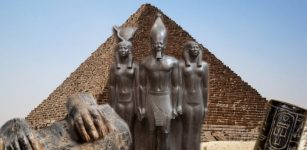 Pharaoh Menkaure – Egyptian Ruler Who Tried To Outsmart Fate
Featured Stories | Nov 18, 2020
Pharaoh Menkaure – Egyptian Ruler Who Tried To Outsmart Fate
Featured Stories | Nov 18, 2020 -
 Secret Story Of The Ancient Bak’Ti Gods And Their Battle To Gain Control Over Humanity And Planet Earth – Told By Shamans
Ancient Mysteries | Jun 23, 2018
Secret Story Of The Ancient Bak’Ti Gods And Their Battle To Gain Control Over Humanity And Planet Earth – Told By Shamans
Ancient Mysteries | Jun 23, 2018 -
 Mystery Of The Banshee – Is The Celtic Death Messenger Linked To The Tuatha De’Dannan Race?
Celtic Mythology | Oct 25, 2015
Mystery Of The Banshee – Is The Celtic Death Messenger Linked To The Tuatha De’Dannan Race?
Celtic Mythology | Oct 25, 2015 -
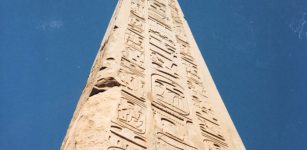 How On Earth Did The Ancient Egyptians Raise Their Colossal Obelisks?
Featured Stories | Feb 14, 2022
How On Earth Did The Ancient Egyptians Raise Their Colossal Obelisks?
Featured Stories | Feb 14, 2022 -
 ‘Our Way Model’ Reveals How First Anatomically Modern Humans Populated Europe
Human Beginnings | Oct 7, 2024
‘Our Way Model’ Reveals How First Anatomically Modern Humans Populated Europe
Human Beginnings | Oct 7, 2024 -
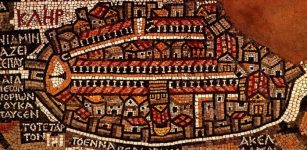 Stunning Madaba Map: Oldest Known Mosaic Built Of Two Million Stone Cubes
Civilizations | Jun 16, 2017
Stunning Madaba Map: Oldest Known Mosaic Built Of Two Million Stone Cubes
Civilizations | Jun 16, 2017 -
 Tree Rings On the Oregon Coast Show Evidence A Tsunami That Struck The Pacific Northwest In 1700
Archaeology | Sep 3, 2021
Tree Rings On the Oregon Coast Show Evidence A Tsunami That Struck The Pacific Northwest In 1700
Archaeology | Sep 3, 2021 -
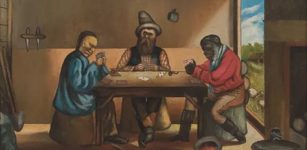 How Gold Rushes Helped Make The Modern World
Featured Stories | Aug 1, 2019
How Gold Rushes Helped Make The Modern World
Featured Stories | Aug 1, 2019 -
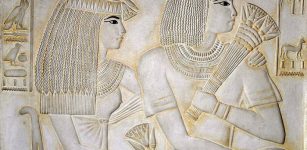 Mystery Of Merit Ptah And The Unknown Identity Of Peseshet Who History Forgot
Archaeology | Jan 8, 2020
Mystery Of Merit Ptah And The Unknown Identity Of Peseshet Who History Forgot
Archaeology | Jan 8, 2020 -
 Kingdom Of Mitanni: Forgotten For Millennia But Once Great Power Of Ancient West Asia In 2000 BC
Civilizations | Jun 20, 2023
Kingdom Of Mitanni: Forgotten For Millennia But Once Great Power Of Ancient West Asia In 2000 BC
Civilizations | Jun 20, 2023 -
 Oldest Known Human-Made Nanostructures Found In Ancient Artifacts In Tamil Nadu
Ancient Technology | Nov 23, 2020
Oldest Known Human-Made Nanostructures Found In Ancient Artifacts In Tamil Nadu
Ancient Technology | Nov 23, 2020 -
 Ancient Dragon Stone That Inspired Legends Discovered In Turkey
Archaeology | Dec 12, 2018
Ancient Dragon Stone That Inspired Legends Discovered In Turkey
Archaeology | Dec 12, 2018 -
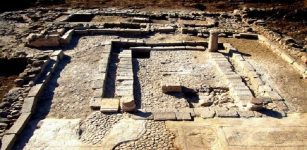 2,000-Year-Old Ruins In Mary Magdalene’s Town Of Magdala On The Shore Of The Sea Of Galilee
Biblical Mysteries | Dec 26, 2014
2,000-Year-Old Ruins In Mary Magdalene’s Town Of Magdala On The Shore Of The Sea Of Galilee
Biblical Mysteries | Dec 26, 2014 -
 Chaneques: Mischievous Legendary Tricksters In Mexican Folklore
Featured Stories | Apr 14, 2020
Chaneques: Mischievous Legendary Tricksters In Mexican Folklore
Featured Stories | Apr 14, 2020 -
 Groundbreaking Study: First Known Case Of Down Syndrome In Neanderthals – Investigated
Archaeology | Jun 28, 2024
Groundbreaking Study: First Known Case Of Down Syndrome In Neanderthals – Investigated
Archaeology | Jun 28, 2024 -
 Ancient Solar Eclipses That Re-Wrote History And Made Ever-Lasting Impact On Humans
Featured Stories | Aug 15, 2017
Ancient Solar Eclipses That Re-Wrote History And Made Ever-Lasting Impact On Humans
Featured Stories | Aug 15, 2017 -
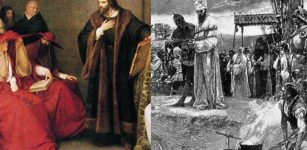 Jan Hus: Czech Reformer And Bohemian Religious Leader Was Burned At Stake For Heresy
Featured Stories | Dec 17, 2019
Jan Hus: Czech Reformer And Bohemian Religious Leader Was Burned At Stake For Heresy
Featured Stories | Dec 17, 2019

